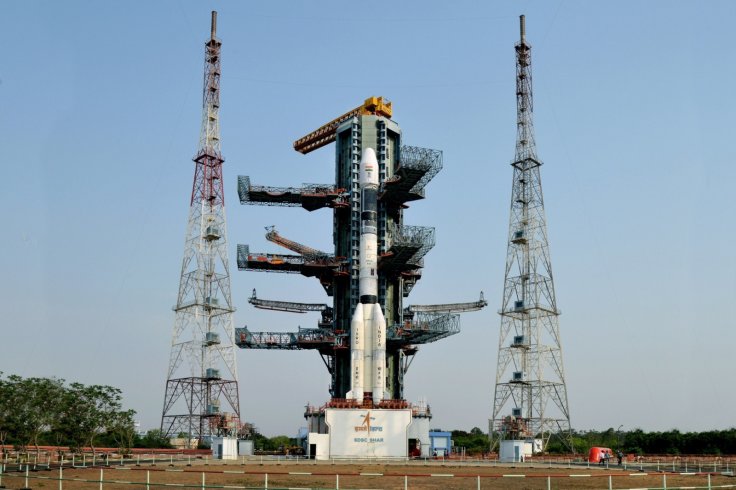
ISRO is all set to launch its GSAT-6A mission aboard GSLV F08 at 4:56 PM IST on Thursday from its launchpad at Sriharikota in Andhra Pradesh and 27-hour countdown was progressing as planned, said an ISRO official.
Watch Live:
To watch the launch of GSAT-6A lunch live, visit ISRO official website or alternatively, visitors can access the live-streaming from the third-party website as given below:
https://cdn.24fd.com/e18//03/isro/29/GSAT-6A/index.html
To watch the curtain-raiser video, click here:
Indian Space Research Organisation (ISRO) said the real-time systems check operations have been completed. The countdown began at 1.56 p.m. on Wednesday. During the countdown, the rocket was fueled up and its systems were checked.
The 415.6-tonne GSLV F08 rocket measuring 49.1 metre tall is scheduled to blast off on Thursday at 4.56 p.m. from the second launch pad in Sriharikota, 105 km from Sriharikota. The GSAT-6A satellite will be put into orbit around 17 minutes after the rocket's liftoff.
ISRO will be testing the high thrust Vikas engine and its electromechanical actuation system during the rocket's second stage this time. GSLV-F08 is the 12th flight of Geosynchronous Satellite Launch Vehicle (GSLV) and Sixth flight with indigenous Cryogenic Stage.
GSAT-6A Mission
GSAT-6A, similar to GSAT-6, is a high power S-band communication satellite configured around I-2K bus, with a mission life of about 10 years. It will provide a platform for developing new technologies such as demonstration of 6 m S-Band Unfurlable Antenna, handheld ground terminals and network management techniques, which are useful in satellite-based mobile communication applications.
Antrix vs Devas Controversy
However, the two satellites became a subject of controversy as 90 per cent of transponders were to be leased to Devas Multimedia by the ISRO's commercial arm Antrix Corporation under a deal which was annulled in February 2011 on the grounds that the country's defence needs had to be met.
Under the controversial deal, the Bengaluru-based Devas was to use the transponders of GSAT-6 and GSAT-6A in the crucial S-Band wavelength (that was primarily kept for the country's strategic interests) for its digital multimedia service for 12 years, reports IANS.
Antrix had signed the $300 million contract with Devas in January 2005 and obtained the sanction of the Space Commission and the union cabinet for the two satellites without informing the government that the bulk capacity would be leased to the multimedia service provider.
When the controversy broke in December 2009, the ISRO ordered a review of the deal and subsequently the Space Commission had recommended its annulment on July 2, 2010. Antrix terminated the deal on February 25, 2011. Subsequently, the GSAT-6 was launched in 2015.
"We have slightly tweaked the configuration of GSAT-6 from the original one to suit the needs of strategic users," ISRO's then Chairman A.S. Kiran Kumar told IANS after the launch of GSAT-6. The controversy and the legal fight is continuing between the parties.
(With additional inputs from IANS)









